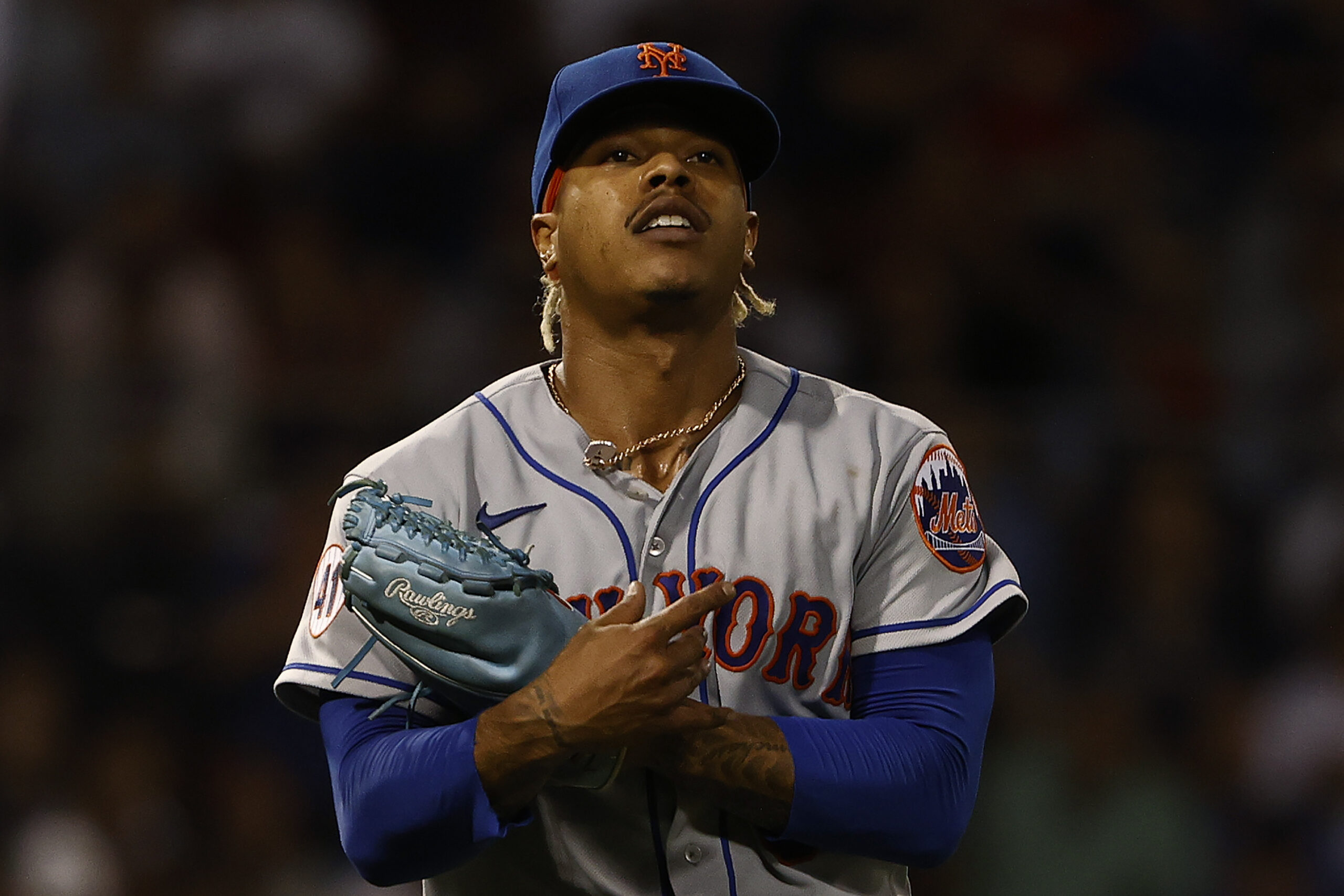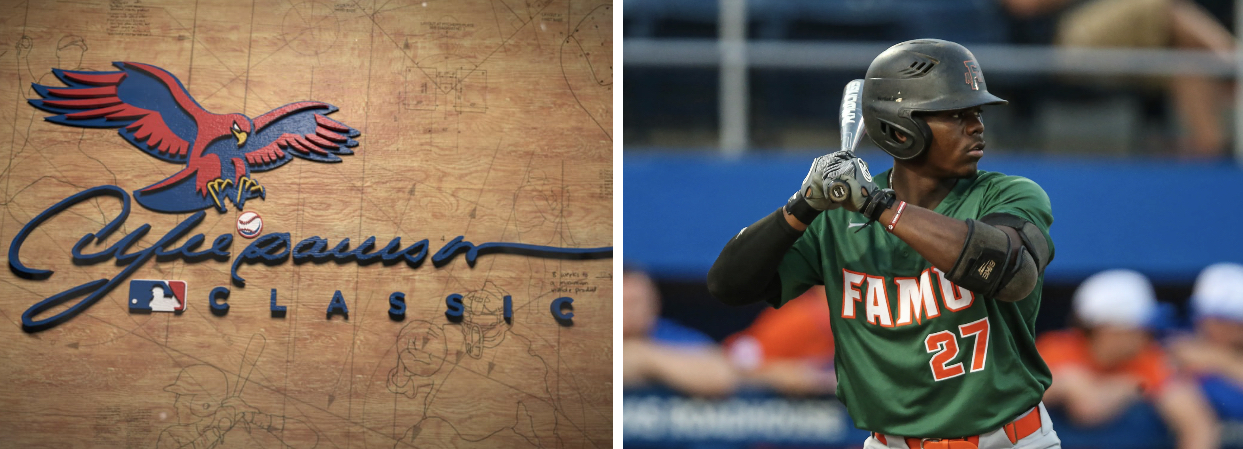The thought of becoming one of segregated MLB’s mythical ambassadors was a pipe dream for a black teenager growing up in the heart of The Lone Star State during the segregated 40s; especially one with ten younger siblings to help keep in order.
When your father works in construction and loads warehouses for a grocery chain and your mother wants you to be a minister, flipping a baseball hustle into a half century of helping to shape a multi-billion dollar sports entity doesn’t seem like a realistic career choice.
Unless… your pops played baseball for black semi-pro teams in Texas. Then went out and bought you a baseball glove for less than three dollars at the local mom and pop store and slowly bribed you with enough nickels and dimes to play catch until you discovered that the answer to all of your wildest dreams is in the jewels your pops dropped on you.
That’s the story of baseball icon Ernie Banks who passed away on Friday at the age of 83 . MLB loses one of the true legends of the game and the most authentic power-producing shortstop in the history. Along with Triple O.G. Honus Wagner and Iron Man II Cal Ripken Jr., Banks was one of three shortstops named to Major League Baseball’s All-Century Team in 1999.
Banks’ nickname of “Mr. Cub” will forever resonate with National League baseball fans and the diehard Cubs faithful which has suffered through more than a century of World Series futility. Banks was not only a living treasure to the city of Chicago—a team he spent his entire 19-year career with beginning in 1953 at the age of 22 when he signed from the Kansas City Monarchs of the Negro Leagues.
Banks is also an African-American treasure, a true American success story and can be considered the Derek Jeter of his generation because of how he conducted himself as a team leader.
To the black community—especially the baby boomer generation— the memory of Banks is as classic as Kool Aid, hopscotch and Doo Wop. Just two years before his death, President Barack Obama awarded the Presidential Medal of Freedom to Banks in the East Room at the White House on November 20, 2013. The Presidential Medal of Freedom is the nation's highest civilian honor, presented to individuals who have made meritorious contributions to the security or national interests of the United States, to world peace, or to cultural or other significant public or private endeavors.
Six years after Jackie Robinson broke MLB’s color barrier, Banks was part of a game-changing wave of pioneering African-American players during the 50s and 60s, who stormed the league, enjoyed illustrious careers, and became all-time fan favorites.
The Cubs were dreadful back then, but it wasn’t the always-optimistic Banks’ fault. The soul-patrolling short stop and first baseman, never made the postseason and played on just six teams with winning records.
His baseball virtue and respect for the game and the fans carried him through the rough years and kept his performance at an elite level. After all, he coined the phrase, “There’s sunshine, fresh air and the team’s behind us. What a great day for baseball. Let's play two!"
Whenever a baseball team of any age in any city in the world laces up their cleats for a double dip, they are competing with the same baseball spirit as Banks, who according to all of his peers, was virtuous and consistent.
He was a one man wrecking crew in its truest sense and because he never played on the big stage where legends become immortals, despite his elite stats Banks can be considered undervalued and underrated when ranking the game’s greatest baseballers.
The closest he came to the playoffs was the infamous 1969 season, when the Cubs collapsed, losing 17 of their final 25 games, and ultimately squandering their division lead to the Mets (who went on to win the World Series). Even at the mature age of 38, when most superstars have been downgraded to platoon and bench duties, Banks hit 23 home runs with 106 RBIs.
Banks wasn’t the typical muscle-bound slugger either. His approach to hitting is what helped the lanky 6-1, 180-pounder (who looked more like a point guard than a hard-hitting member of baseball’s elite 500-homer clique) blast balls out of Wrigley Field like he was flicking a light switch.
Any leading baseball writer of Banks’ day, at some point, has waxed poetic about his baseball brilliance:
"His wrists are the secret of (Ernie) Banks' success. Instead of taking the big Ruthian type swing of the lively ball era, he swings his bat as if it were a buggy whip, striking at the ball with the reflexive swiftness of a serpent's tongue." – Bill Furlong in Baseball Stars of 1959
Banks hit .313 with 129 RBIs and set a major league record for shortstops with 47 home runs during his 1958 MVP season, but the Cubs stumbled to a 72-82 record. He doubled up on that MVP award in 1959 slamming a gaudy 45 homers with an NL-leading 143 RBIs for a 74-80 team. Banks wasn’t a one dimensional player by any means. He won a Gold Glove at shortstop in 1960 and then led all league first basemen in putouts five times.
To this day, not much has changed with the franchise. Forty-four years after Banks retired in 1971 the Cubs are still hardware-hunting and up until his passing Banks was still the quintessential baseball ambassador and cultural and communal glue stick for The Windy City.
Banks was active in the Chi-Town community during and after his days on the diamond. He founded a charitable organization, became the first black Ford Motor Company dealer in the United States, and made an unsuccessful bid for a local political office. Over the years he’s served the franchise as a coach, roving minor league instructor and front office brain.
A first-ballot inductee into the Baseball Hall of Fame in 1977, Banks was the first player to have his jersey (No. 14) retired by the Cubs, in 1982. The club later honored him with a Big-Willie-style statue outside Wrigley Field that was unveiled in 2008.
The Cubs are still searching for their next great shortstop. In 1982 the Cubs drafted a cat named Shawon Dunston out of East NY Brooklyn with the No. 1 overall pick in the MLB Draft. He was supposed to be the next stud, but three decades later Bank's potent and pristine Chi-town legacy is as secure and certain as the immovable, unique and nostalgic ivy that lines the outfield walls.



